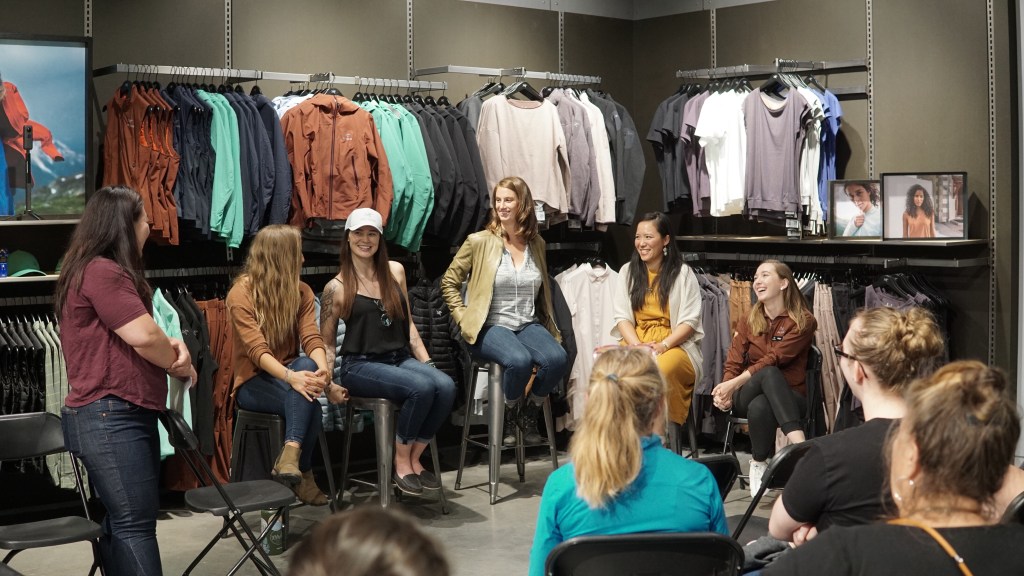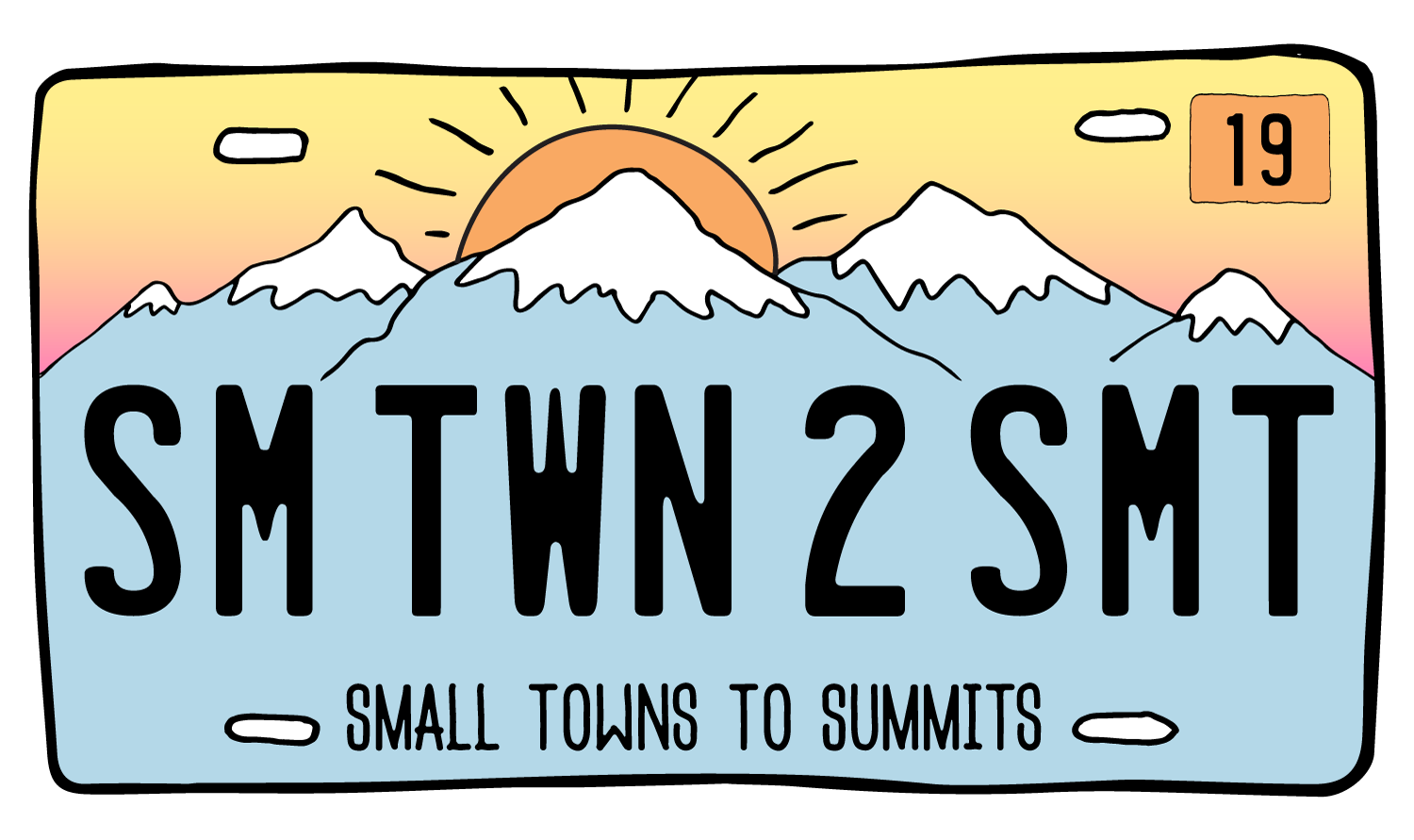This Thanksgiving, we had so much to be thankful for it was impossible to know where to begin. Our friends and families have supported us and our crazy ideas from the very first day, and getting to spend time with our loved ones this past weekend was a powerful reminder of our good fortune.
Our most common question over the summer (and still now) is this: “How did you make this happen??” This ranged in specificity from our financial support, our employment status, and how we had the courage to take the leap of faith. It would be all too easy to say that Alex and I are simply two motivated individuals who have worked hard to follow our dreams, and that “anyone can do it.” However, the range of factors that have allowed Alex and I to chase our passion are not available to every individual in our society. Small Towns to Summits likely would not have been possible if we were not young, white, educated women with social networks that can offer financial support.
Familial Support
An enormous factor that allowed us to fully “send it” this summer was the fact that we would have been able to completely empty our savings if need be. Both of us have strong, reliable support networks and immediate family to fall back of on. Neither one of us had to diligently set aside a certain amount of money to cover rent and various living expenses promptly upon returning, or work while on the road. This privilege allowed us to fully immerse ourselves into our road trip and focus 100% on climbing mountains and creating meaningful content.
Of course there were financial stressors while on the road, and the two of us both worried about life when we returned. Both of us heavily invested in this project personally, and with that came the fear of returning and having no financial independence. However, neither one of us ever had to consider whether or not we would have a roof over our head or enough to eat when we got back.
Familial Values
We were both raised to believe in ourselves and follow our passion. Of course most parents have a vision of what they want for their children, and there may have been a bit of questioning over our decision to live in a car for two and a half months but at the end of the day we had full support. Pursuing this project didn’t mean cutting ties with or vehemently going against what our families supported us in doing. This is absolutely a privilege that both of us are incredibly thankful for.
We were taught to dream big without limit. That we can be or do whatever we want to as long as we work hard enough. This very well may be the case for us, but this is not the reality for so many people in this country. Without financial support, both through physical contributions and a safety net to return to, this project never would have happened. Without our immediate families and close friends telling us that we CAN do this, our project would have been much more difficult. Both of us recognize the significance of having role models and close friends who put faith in our craziest ideas.
Individual Social Location
Without getting too sociological, in a nutshell social location is who we are as it relates to various social factors: young, educated, white women. We were accepted and allowed into many places that other individuals may not have been. From being able to get interview subjects to agree to allow their time to asking for rides in a couple of pinches, there were many situations throughout the summer where we actively reflected on how our privilege was playing a role.
When we got a flat tire in Montana, we weren’t scared or stressed. We were fortunately in service and across the street from a convenience store, and as soon as we had AAA on the phone we accepted what our day had become. Over the next 24 hours, we had many individuals lend us a hand which we are so grateful for, but we largely attribute to our social location. We often mulled over this question, how much more difficult would this project have been if we were not young and white?
Gender was arguably the most dynamic factor during this trip. Often (and most commonly in the mountains), our abilities were underestimated and we had to convince others that we were actually climbing these peaks. However, we concluded that many times our gender was used to our advantage as we were assumed to be non-threatening, never being asked to leave a coffee shop after 10 hours or never questioned about staying in a specific campsite. As we continue to parse through all our content and study interviews, we will continue to explore how gender affects one’s experience in the outdoors and in the “real” world. We certainly were not alone in this complicated relationship.
This isn’t just a fun thought experiment for the two of us. Diverse representation in the outdoors has been historically abysmal, and today many individuals are starting to ask those tough questions. All too often, we heard that the two of us were brave, fearless, and inspiring. While this all may be true (thank you), what we did this summer is not something “everyone can do if they work hard enough.” We want to join the conversation and continue the fight to address how certain individuals are heard and accepted more than others.
Over the summer, we had the privilege of speaking at two events: “Actually, I Can” both in Palo Alto and Seattle. These events were put on by The Lady Alliance and featured women who were going against the grain and carving their own unique path in the outdoors. We spoke about what it took to take our leap of faith and discussed what we had learned from the mountains. However, we were most inspired by individuals who had not seen themselves represented – yet still found their path in the outdoors. Many of their solutions offered had to do with representation: supporting brands who feature a diverse group of models, brands who carry clothes to fit all body types, and brands who actively engage in this conversation.
Simply writing this blog post will not dismantle years of systematic oppression that have kept certain groups out of the outdoors. Our goal is not to say what should be done – as voices of privilege are not the ones who should be heard. It’s up to us to listen, do the work, and join the fight.

Videos of our full speeches at the Women’s Empowerments events can be found on our YouTube channel!
Click here for our speech in Palo Alto
Click here for our speech in Seattle
Right now, we’re in the process of piecing every part of our project together. This includes considering every factor that led to us to the mountains this summer, most importantly our privilege. To continue following our journey, make sure to check out all of our social channels if you haven’t already! We’re getting ready to share from indisputably our favorite climb: The Grand Teton.
Instagram: https://www.instagram.com/smalltowns2summits/
Youtube: https://www.youtube.com/channel/UC4PWsvwADCzRN30pUrFcLkQ
Facebook: https://www.facebook.com/Small-Towns-to-Summits-227733361424169
